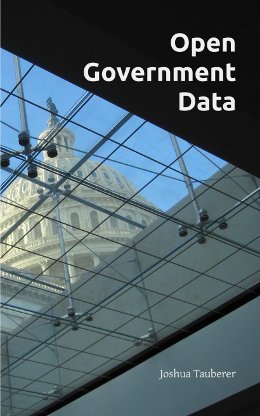OKF’s Open Knowledge Definition
The Open Knowledge Foundation created the Open Knowledge Definition, now called the Open Definition, in 2006. It draws heavily on definitions of open source software. Version 1.1, completed in November 2009, is excerpted below and can be found at opendefinition.org.
The Open Definition is not specific to government-held data. It is intended to address a broader notion of openness and addresses many concerns that arose for open source software that other collections of principles did not think to include. However, I noted in No Discrimination and License-Free that I believed this definition is too weak to be applied to government data, as it would allow governments to control use of the data through licensing. In countries besides the United States licensing is more common and accepted.
A work is open if its manner of distribution satisfies the following conditions:
Access. The work shall be available as a whole and at no more than a reasonable reproduction cost, preferably downloading via the Internet without charge. The work must also be available in a convenient and modifiable form.
Redistribution. The license shall not restrict any party from selling or giving away the work either on its own or as part of a package made from works from many different sources. The license shall not require a royalty or other fee for such sale or distribution.
Reuse. The license must allow for modifications and derivative works and must allow them to be distributed under the terms of the original work.
Absence of Technological Restriction. The work must be provided in such a form that there are no technological obstacles to the performance of the above activities. This can be achieved by the provision of the work in an open data format, i.e. one whose specification is publicly and freely available and which places no restrictions monetary or otherwise upon its use.
Attribution. The license may require as a condition for redistribution and re-use the attribution of the contributors and creators to the work. If this condition is imposed it must not be onerous. For example if attribution is required a list of those requiring attribution should accompany the work.
Integrity. The license may require as a condition for the work being distributed in modified form that the resulting work carry a different name or version number from the original work.
No Discrimination Against Persons or Groups. The license must not discriminate against any person or group of persons.
No Discrimination Against Fields of Endeavor. The license must not restrict anyone from making use of the work in a specific field of endeavor. For example, it may not restrict the work from being used in a business, or from being used for genetic research.
Distribution of License. The rights attached to the work must apply to all to whom the program is redistributed without the need for execution of an additional license by those parties.
License Must Not Be Specific to a Package. The rights attached to the work must not depend on the work being part of a particular package. If the work is extracted from that package and used or distributed within the terms of the work’s license, all parties to whom the work is redistributed should have the same rights as those that are granted in conjunction with the original package.
License Must Not Restrict the Distribution of Other Works. The license must not place restrictions on other works that are distributed along with the licensed work. For example, the license must not insist that all other works distributed on the same medium are open.
 Open Government Data: The Book
Open Government Data: The Book